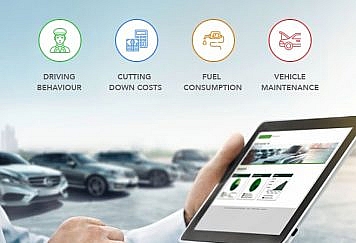The evolution of truck technology isn’t just about horsepower and towing capacity anymore. Modern advancements are revolutionizing how trucks are built, maintained, and protected, leading to unprecedented levels of durability. According to Mil Spec Liner, a supplier of truck spray in bedliners and accessories, the integration of cutting-edge technology in truck manufacturing and aftermarket modifications is transforming the industry’s approach to vehicle longevity.
Advanced Materials Science
The foundation of truck durability begins with materials science. Today’s trucks benefit from sophisticated metallurgical advances that weren’t possible even a decade ago. High-strength steel alloys, developed through computer-aided molecular engineering, provide exceptional structural integrity while reducing overall weight. These materials undergo extensive simulation testing before implementation, ensuring they can withstand extreme conditions without compromising performance.
Manufacturers are increasingly incorporating composite materials that offer superior strength-to-weight ratios. Carbon fiber reinforced polymers, once reserved for high-end sports cars, are finding their way into truck bodies and components. These materials not only resist corrosion but also absorb and distribute impact forces more effectively than traditional materials.
Smart Coating Technologies
Surface protection has undergone a technological revolution. Nano-ceramic coatings, developed through advanced chemical engineering, create an invisible shield that protects against environmental damage, UV rays, and chemical exposure. These molecular-level treatments form a permanent bond with the truck’s surface, providing long-lasting protection that traditional waxes and sealants can’t match.
The integration of self-healing coatings represents another breakthrough. These innovative materials contain microscopic capsules filled with repair agents that automatically activate when the surface is scratched or damaged. While currently in early adoption phases, this technology promises to significantly reduce maintenance requirements and extend the aesthetic lifespan of trucks.
Predictive Maintenance Systems
Modern trucks are equipped with sophisticated sensor networks that continuously monitor vehicle health. These systems use artificial intelligence and machine learning algorithms to analyze data from hundreds of sensors, detecting potential issues before they become serious problems. By tracking parameters like engine temperature, oil quality, and component wear patterns, these systems can predict maintenance needs with remarkable accuracy.
Real-time monitoring extends to structural integrity as well. Embedded sensors can detect microscopic changes in material stress, allowing fleet managers and owners to address potential failures before they occur. This proactive approach to maintenance significantly extends vehicle lifespan and reduces costly repairs.
Enhanced Protection Through Design
Computer-aided design (CAD) and computational fluid dynamics have revolutionized how trucks are engineered for durability. Advanced simulation software allows engineers to test thousands of design iterations virtually, optimizing everything from aerodynamics to impact resistance. This level of precision in design helps eliminate weak points and enhance overall structural integrity.
Modern trucks also incorporate “crumple zones” and reinforced cabins designed using sophisticated impact modeling software. These safety features not only protect occupants but also help preserve the vehicle’s core structure in the event of a collision, making repairs more feasible and extending the truck’s serviceable life.
Intelligent Load Management
Today’s trucks feature advanced load management systems that help prevent stress-related damage. Dynamic weight distribution systems automatically adjust suspension and braking parameters based on cargo weight and distribution. This technology helps prevent overloading and ensures even wear on components, significantly extending their lifespan.
Electronic stability control systems have evolved to include terrain recognition capabilities. These systems can instantly adjust power delivery and suspension settings to match ground conditions, reducing wear and tear on drivetrain components while improving vehicle control.
Advanced Diagnostic Tools
The rise of sophisticated diagnostic technology has transformed how trucks are maintained and repaired. Modern diagnostic tools can interface with multiple vehicle systems simultaneously, providing comprehensive health reports and identifying potential issues with unprecedented accuracy. These tools often integrate with maintenance scheduling software, ensuring that preventive care is never overlooked.
Augmented reality (AR) systems are increasingly being used in maintenance and repair operations. Technicians can use AR headsets to visualize repair procedures, access real-time diagnostic data, and ensure precise component installation. This technology reduces repair errors and improves maintenance quality, contributing to longer vehicle life.
Environmental Protection Systems
Modern trucks incorporate advanced environmental protection features that help preserve vehicle integrity in challenging conditions. Improved sealing systems, developed using advanced polymer science, better protect sensitive components from dust, moisture, and debris. Sophisticated filtration systems, using nano-fiber technology, provide superior protection for engines and other critical systems.
Climate control systems have evolved to include intelligent moisture management, helping prevent corrosion in vulnerable areas. These systems work in conjunction with advanced ventilation designs to maintain optimal operating conditions for both mechanical components and electronic systems.
The Future of Truck Durability
As technology continues to advance, the future of truck durability looks increasingly promising. Development of new materials, including graphene-enhanced composites and advanced ceramics, promises to further improve strength and durability while reducing weight. Integration of artificial intelligence and Internet of Things (IoT) technology will enable even more sophisticated predictive maintenance capabilities.
Emerging technologies like self-repairing materials and advanced energy absorption systems are already in development, promising to further enhance truck durability in the coming years. These innovations, combined with ongoing improvements in existing technologies, suggest that tomorrow’s trucks will be even more resilient and longer-lasting than today’s models.
The technological revolution in truck durability represents a significant shift in how these vehicles are designed, built, and maintained. From advanced materials and smart coatings to predictive maintenance and intelligent load management, modern technology is creating trucks that are more durable, reliable, and longer-lasting than ever before. As these technologies continue to evolve, we can expect to see even more impressive advances in truck durability and performance.
Follow TechStrange for more!




